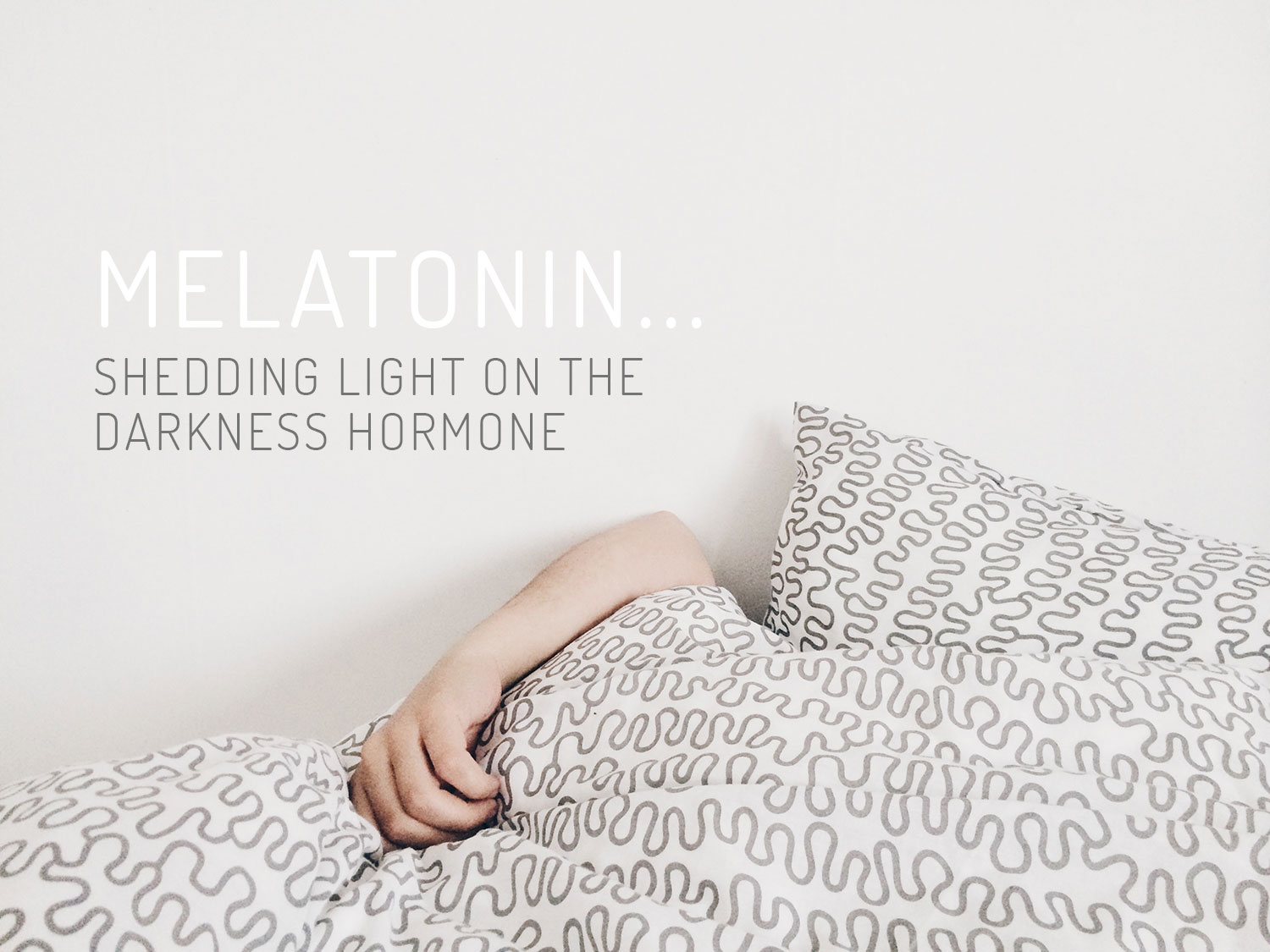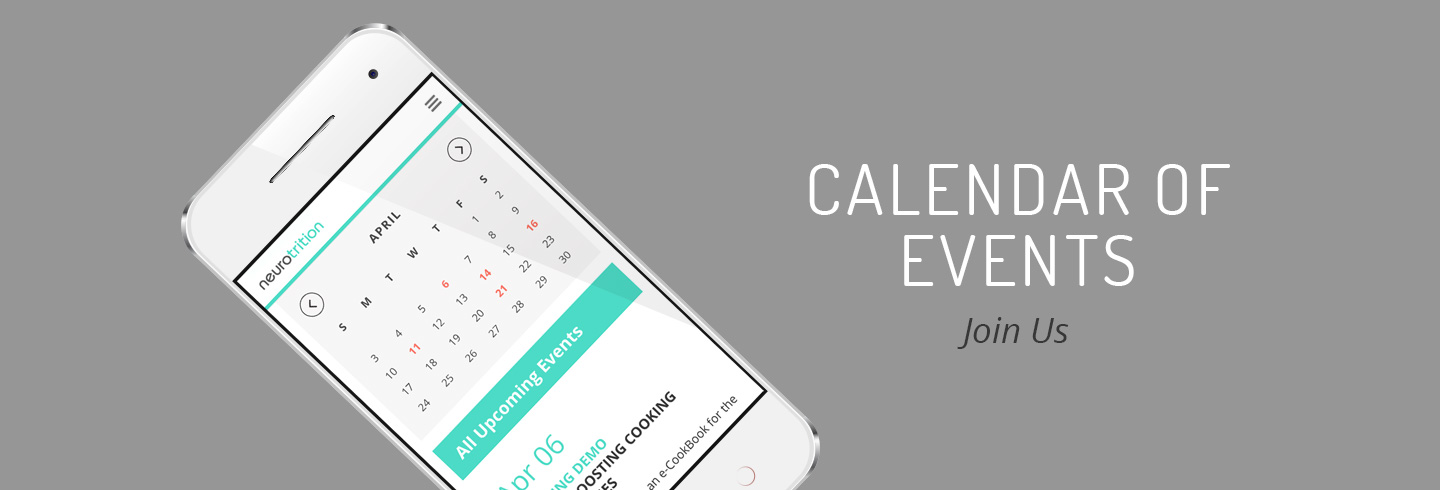Melatonin: Shedding Light On The Darkness Hormone

You've probably heard: Sleep is good for your brain (and the rest of your body). And you probably know that not getting enough good quality sleep (at the right time, i.e. at night) can impact your mood and memory, reduce your ability to concentrate and make sound decisions, and even induce sugar cravings and emotional eating (and therefore weight gain) by messing with your appetite hormones. You may also know that people who don’t get enough sleep have an increased risk for several conditions such as heart disease, diabetes, obesity, and cancer. Sleep deprivation can even lower your immunity—have you noticed how you get sick after a period of sleepless nights?
People who don’t get enough sleep have an increased risk for several conditions such as heart disease, diabetes, obesity, and cancer.
Seeing how important sleep really is for your health, and how difficult it is for most people to get the recommended 8 hours per night, you may be wondering but not know this though: What can be done?
Enter melatonin, the hormone that helps you fall asleep faster and stay asleep longer. Melatonin is naturally produced from the amino acid tryptophan (via the intermediary compound you've heard of, serotonin) and is secreted by the pineal gland in the brain. Release of melatonin is stimulated by dim light, when the retinas of your eyes detect low levels of blue-light such as during red/amber sunsets. In fact, exposure to fluorescent lights in the late afternoon (hello lovely office lighting, airport lighting, etc.) is known to disrupt melatonin secretion. Melatonin is an important output of the biological clock that drives your sleep-wake cycles (as part of your circadian rhythm) and causes increased drowsiness at nighttime. In an ideal world your melatonin levels peak during the first half of the night, then nicely diminish for a slow, gentle awakening in the morning.
What's the Down Low on Melatonin Supplements?
Before you consider supplementing, know that melatonin supplements have a longer list of cautions and warnings than most supplements. They’re not recommended:
- if you need to be alert (e.g. driving or operating machinery)
- if you’re pregnant, breastfeeding, or have certain medical conditions
- if you’re already taking something that causes drowsiness or that may interact with it (i.e. alcohol or certain supplements or medications)
- nor is it recommended to take melatonin supplements for more than 4 weeks
If you decide to try a melatonin supplement, make sure you read all of the labeled cautions and warnings and take it as directed. Talk to your doctor if you have any concerns.
Do Melatonin Supplements Really Work?
Supplementing with melatonin has been shown to have some health benefits, particularly in re-establishing sleep patterns for people who do shift work or are jet-lagged. One review of 10 clinical studies showed that nine of them demonstrated reduced jet-lag after supplementing with melatonin close to bedtime. Interesting tidbit: The benefit of melatonin supplementation seems to be greater the more time zones that are crossed, especially when traveling eastward.
The benefit of melatonin supplementation seems to be greater the more time zones that are crossed, especially when traveling eastward.
The recommended way to take melatonin supplements so that it can help reset the body's sleep-wake cycle is to take it once per day, at or around 30 minutes before bedtime at your new destination. Don't be afraid to start small, dosing at 0.5 mg and increasing slowly if that doesn't work for you. You can work up to 3-5 mg if necessary, but know that more than 5 mg melatonin likely won't help you fall asleep any faster. When it comes to melatonin supplementation, less is more.
So, Can I Increase My Melatonin Naturally?
There are many things you can do to help your body naturally produce melatonin. Of course, melatonin supplements can’t replace all of these good sleep habits, but they can help some people.
- Eat foods that contain melatonin. Small amounts of melatonin are found in tomatoes, walnuts, cherries and strawberries. While the evidence is limited right now on the impact these foods have on your melatonin levels, these are all known brain foods.
- Eat tryptophan containing foods. You can eat tryptophan so your body has the building block amino acid for melatonin production. Foods high in tryptophan include poultry (e.g. turkey and chicken), eggs, seeds (e.g. pumpkin and sesame), cheese, and beans (e.g. kidney and mung). Again, the evidence that this increases melatonin levels in the body is limited, but these are well known brain loving foods, too.
- Get off the blood sugar rollercoaster. You can reduce blood sugar fluctuations throughout the day by avoiding too many added sugars and artificial sweeteners, and steering clear of naturally high glycemic foods. If you want/need/must have that favourite sweet food, add protein or fat to it as research suggests this reduces its glycemic value (translation: how it effects your blood sugar).
- Limit regular intake of caffeine, and stop it altogether past 12:00 noon. This is not only because the effects of caffeine counteract the effects of melatonin, but also because both compounds are metabolized by the same class of enzymes so compete for metabolism. And this doesn’t just include coffee, but also tea, chocolate, and even kombucha.
- Get some sunshine every day, ideally 20 minutes or more. Exposure to bright light during the morning or midday is an important way to help support your body to naturally set your sleep-wake cycle. Bonus points for keeping those sunglasses off to get the full effect.
- Exercise every day, preferably earlier rather than later. Exercise can help improve sleep, but for some people, exercising in the evening can make it more difficult to fall asleep.
- Turn off those artificial lights after dark. Suppresses release of melatonin. Enough said.
- If you need some light after dark, dim those bulbs. Or better yet, use red/amber bulbs to minimize the blue light entering your eyes.
- Stop looking at screens. This includes TVs, computers, ebook readers, and tablets. If you must use these at night, get an app to block those blue rays.
- Be super-trendy. Seriously, try wearing some stylin’ blue-blocker sunglasses after the sun goes down.
Contributions to this article provided by Dr. Ilia Karatsoreos, PhD.
- References
-
- Allegra, M., Reiter, R.J., Tan, D.X., Gentile, C., Tesoriere, L. & Livrea, M.A. (2003). The chemistry of melatonin's interaction with reactive species. Journal of Pineal Research, 34(1):1-10.
- Arendt, J., Skene, D.J., Middleton, B., Lockley, S.W. & Deacon, S. (1997). Efficacy of Melatonin Treatment in Jet Lag, Shift Work, and Blindness. Journal of Biological Rhythms, 12(6):604-17.
- Burkhardt, S., Tan, D.X., Manchester, L.C., Hardeland, R., & Reiter, R.J. (2001). Detection and quantification of the antioxidant melatonin in Monmorency and Balaton tart cherries (Prunus cerasus). Journal of Agriculture Food Chemistry, 49(10):4898-902.
- Burkhart, K. & Phelps, J.R. (2009). Amber lenses to block blue light and improve sleep: a randomized trial. Chronobiology International, 26(8):1602-12.
- Dollins, A.B, Zhdanova, I.V., Wurtman, R.J., Lynch, H.J. & Deng, M.H. (1994). Effect of inducing nocturnal serum melatonin concentrations in daytime on sleep, mood, body temperature, and performance. Proceedings of the National Acadademy of Sciences USA, 91(5):1824-8.
- Eguchi, K., Pickering, T.G., Schwartz, J.E., Hoshide, S., Ishikawa, J., Ishikawa, S., Shimada, K. & Kario, K. (2008). Short Sleep Duration as an Independent Predictor of Cardiovascular Events in Japanese Patients With Hypertension. Archives of Internal Medicine, 168(20):2225-2231.
- Gangwisch J.E., Malaspina, D., Boden-Albala B. & Heymsfield, S.B. (2005). Inadequate sleep as a risk factor for obesity: analyses of the NHANES I. Sleep, 28(10): 1289-1296.
- Haim, A. & Zubidat, A.E. (2015). Artificial light at night: melatonin as a mediator between the environment and epigenome. Philosophical Transactions of the Royal Society B: Biological Sciences, 370(1667):
- Hartter, S., Nordmark, A., Rose, D.M., Bertilsson, L., Tybring, G. & Laine, K. (2003). Effects of caffeine intake on the pharmacokinetics of melatonin, a probe drug for CYP1A2 activity. British Journal of Clinical Pharmacology, 56(6):679-82.
- Health Canada Melatonin NHP Monograph
- Herxheimer, A. & Petrie, K.J. (2002). Melatonin for the prevention and treatment of jet lag. Cochrane Database of Systematic Reviews. (2):CD001520.
- Iriti, M., Varoni, E.M., & Vitalini, S. (2010). Melatonin in traditional Mediterranean diets. Journal of Pineal Research, 49(2):101-5.
- Nave, R., Peled, R. & Lavie, P. (1995). Melatonin improves evening napping. European Journal of Pharmacology, 275(2):213-6.
- Reiter, R.J., Manchester, L.C., & Tan, D.X. (2005). Melatonin in walnuts: influence on levels of melatonin and total antioxidant capacity of blood. Nutrition, 21(9):920-4.
- Reiter, R., Tan, D.X., Poeggeler, B., Menendez-Pelaez, A., Chen, L.D. & Saarela, S. (1994). Melatonin As a Free Radical Scavenger: Implications for Aging and Age-Related Diseases. Annals of the New York Academy of Sciences, 719(1):1-12.
- Spiegel, K., Knutson, K., Leproult, R., Tasali, E. & Van Cauter, E. (2005). Sleep loss: a novel risk factor for insulin resistance and Type 2 diabetes. Journal of Applied Physiology, 99(5):2008-19.
- Spiegel, K., Tasali, E., Penev, P. & Van Cauter, E. (2004). Brief Communication: Sleep curtailment in healthy young men is associated with decreased leptin levels, elevated ghrelin levels, and increased hunger and appetite. Annals of Internal Medicine, 141(11):846-50.
- Stevens, R.G. & Zhu, Y. (2015). Electric light, particularly at night, disrupts human circadian rhythmicity: is that a problem? Philosophical Transactions of the Royal Society of London Biological Sciences, 370(1667).
- USDA Food Composition Database
- Wang, J.Z. & Wang, Z.F. (2006). Role of melatonin in Alzheimer-like neurodegeneration. Acta Pharmacologica Sinica, 27(1):41-9.
- Wirz-Justice, A., Krauchi, K., Cajochen, C., Danilenko, K.V., Renz, C. & Weber, J.M. (2004). Evening melatonin and bright light administration induce additive phase shifts in dim light melatonin onset. Journal of Pineal Research. 36(3):192-4.










